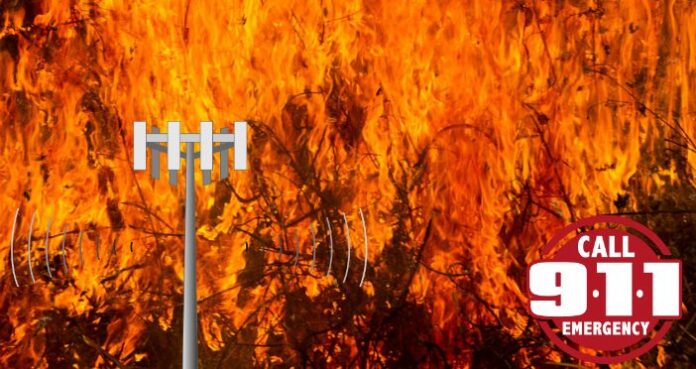Fatal fire call to 911 delayed, blamed on cell towers
This week a fatal fire broke out in Forestdale, Ala. While deadly fires aren’t a unique phenomenon, unfortunately, blaming the fatality on the cell tower is somewhat less common. According to Forestdale Fire Chief Don Melton, a neighbor called 911, but “communication issues” from cell towers caused a two-minute delay in response time. The victim was Veria Johnson, the pastor of a local church who lived in a basement apartment.
“He came out and pretty much saw smoke coming out of the door, dialed 911, but unfortunately it went to Birmingham Fire. Birmingham then, in turn, had to call us [at] Jefferson County 911 to get us en route,” Melton said.
Are cell towers truly to blame? Some would argue yes. Most 911 calls have no priority over general calls when getting sent through a tower, so if a particular tower or network is suffering from an outage it can mean the difference between life and death. With the proliferation of mobile devices, networks become more crowded. But, when there’s a 911 outage, the Federal Communications Commission takes it seriously. After a 911 outage in 2014, the FCC levied $17.6 million in cumulative fines against CenturyLink and Intrado Communications. Verizon Communications had to pay $3.4 million for 911 outages this March. T-Mobile US set the record for the highest 911-related fine at $17.5 million for outages, and in the past four months, operators have been fined a total of $40 million for outages.
What can be done? FCC Chairman Tom Wheeler has pushed for next-generation 911, including text 911 services and more accurate location systems. There’s also FirstNet, which is dedicated to building, deploying and operating a nationwide public safety broadband network. This would be a separate network solely dedicated to first-responders. That effort received $7 billion in funding late last year, has already received initial reports on pilot projects and most recently got budget approval for its next phase and reorganized its leadership.
Let’s hope that these initiatives to improve 911 and emergency response see completion sooner rather than later so that no one else can even have the potential of losing their life because of delayed communications attributed to a cell tower.
Tower concealment
In this week’s edition of “Cell Tower News,” host Joey Jackson talked with Trey Nemeth, VP of operations for Stealth Concealment, about the growing concealed tower market.
Regional/local tower news
- Verizon cell tower approved for Vaughn Middle School in Washoe County, Nev.
- Verizon Wireless wants to put cell tower in Iowa City park.
- Kix Country radio tower in Michigan collapsed.
- Lincoln, Neb., neighborhood fights proposed cell tower.
- Proposed cell tower fails to get planning board recommendation in Burlington, N.C.
- Oconee County, S.C., zoning board approves new cell tower.
- Belchertown, Mass., board rejects request for 140-foot-high Verizon Wireless cellphone tower.
- New cell tower proposed in Southhampton Village, N.Y.
- South Tank cell tower debate in Shelburne, Vt.
- Lower Macungie, Pa., residents oppose proposed cell tower.
- Concerns arise in Holly Springs, N.C., over future of cell tower.
- Request to build cellphone tower on township-owned land in Bernards, N.J., denied.
- Sudden Valley, Wash., fights proposed Verizon Wireless cell tower in Camp Firwood.
Featured image is a modified version of this copyright: sipellen0 / 123RF Stock Photo

